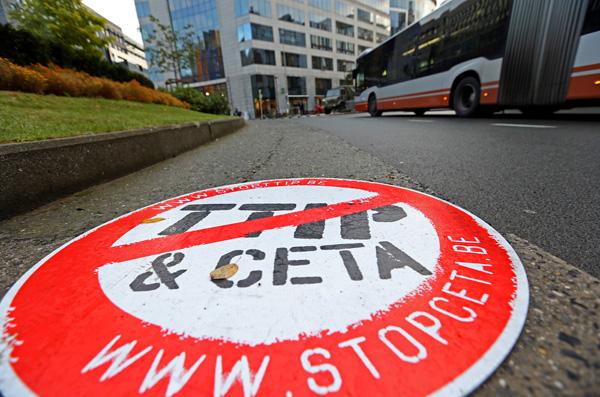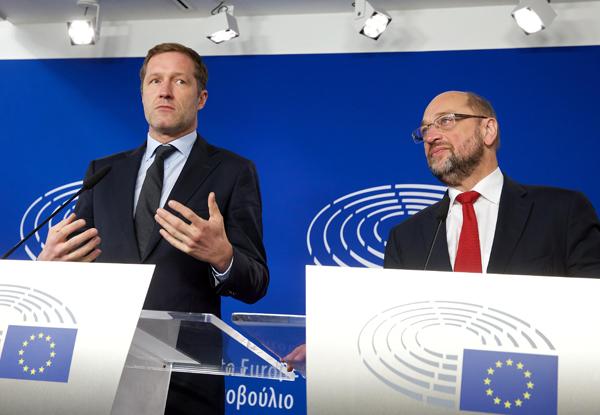You are here
EU's Tusk warns Canada trade deal 'could be our last'
By AFP - Oct 20,2016 - Last updated at Oct 20,2016

A placard reading ‘STOP TTIP CETA’ is seen outside the EU Council headquarters ahead of a European Union leaders summit in Brussels, Belgium, on Thursday (Reuters photo)
BRUSSELS — European Union President Donald Tusk warned the bloc would be incapable of negotiating new trade deals if Belgium failed to approve the accord with Canada by Friday.
The deal, known as CETA, "could be our last free trade agreement, if we are not able to convince people that we negotiate to protect their interests", Tusk said as he arrived on Thursday for a two-day EU summit to discuss trade issues.
Tusk spoke as the head of the Belgian region of Wallonia still refused to sign off on the EU-Canada trade accord and asked that a signature next week with Canadian premier Justin Trudeau be delayed indefinitely.
"I hope that Belgium will once again prove that it is a true champion in compromise making, that on Friday we will have an agreement that paves the way for CETA," Tusk said.
The parliament of the region of Wallonia last week voted to block CETA, meaning that Belgium cannot sign up to the pact and leaving the deal in limbo after seven years of negotiations.
Paul Magnette, the outspoken head of government of Wallonia, has said differences remained too wide on a contested investor protection system that has become a hot-button issue for the anti-free trade movement.
EU leaders fear that if CETA were to fail, it would send a signal to the world that it is difficult if not impossible to reach trade deals with Europe.
The struggle to close the deal is also a worry for Britain, with many seeing CETA as a potential model for EU ties with the UK after Brexit.
CETA is opposed by a wide array of groups, who say it is a test model to push through the even more controversial EU-US trade deal called TTIP, still in negotiation.
Activists believe both deals threaten environmental and consumer protection and offer unfair benefits to multinationals.
Related Articles
BRUSSELS — EU president Donald Tusk said he and Canadian Prime Minister Justin Trudeau believe a summit on a landmark EU-Canada trade accord
BRUSSELS — The head of the European parliament and Canada's trade minister held last-ditch talks Saturday, aimed at salvaging a trade deal t
UNITED NATIONS, United States — Palestinian President Mahmoud Abbas on Tuesday told the UN Security Council that the world should reject Pre














